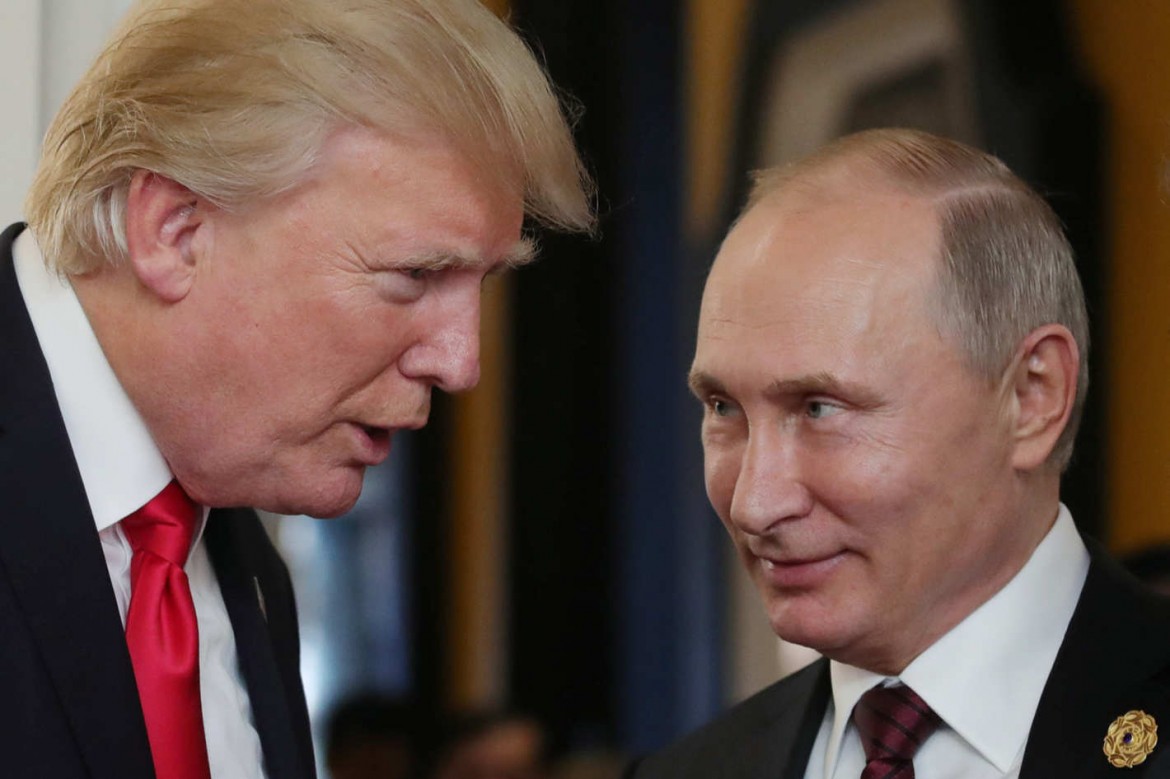Reportage
Russia: The Americans are trying to start an ‘arms race’
The Russian Foreign Ministry is seeding the narrative around the Trump-Putin meeting this week in Helsinki, accusing Washington of talking big in order to drum up arms sales.

Ahead of the Helsinki summit on Monday between Trump and Putin, there was no shortage of comments in Moscow about Trump’s attacks against Germany (the line coming from the Kremlin is that Merkel is big enough to defend herself). In her weekly briefing, Maria Zakharova, the official spokesperson of the Russian Foreign Ministry, gave an overall assessment on the NATO Summit in Brussels: “I don’t want to be too rough,” began the diplomat, “but I think that the essential point of this whole game is trying to make money from defense.”
According to Zakharova, behind all the great strategic talk one can see the small-mindedness of the Americans “going around to each country with their hand outstretched, asking them to increase their share of spending.” After so much spilled ink about the “danger posed by Russia, the US, adventurers as they are, say they are ready to ensure a vigorous defense of Europe—but only for pay,” joked Sergey Lavrov’s spokesperson. Furthermore, she concluded, “they want to put us all on the road to an arms race.”
“We do not know what the ultimate goal of the US is, and to what extent it is a realistic one,” says Vasily Kashin, head of the Institute for European and International Research in Moscow. “It is possible that Trump has remained stuck within the mindset of the Cold War, a time when, for European countries such as France, it was normal to maintain a level of military expenditure of 3.5 percent of GDP.” According to Kashin, however, times have changed, and given the level of public debt as a proportion of GDP for many European countries, “they could not move towards that even if they wanted to.”
It seems to be impossible for NATO to remove the perception by Moscow that its main purpose is to roll out an “iron curtain” around Russia, as Macedonia is preparing to join with Athens’ blessing, and other countries are insistently knocking on the door of the alliance flying the white compass rose flag. In yesterday’s meeting between the leaders of the Alliance and the representatives of Georgia and Ukraine, the discussion was about how to accelerate the process of admission into NATO of the two ex-Soviet countries. In particular, Georgian Prime Minister Mamuka Bakhtadze expressed confidence that NATO would appreciate his country’s progress on the path of reforms that are bringing his country up to the Alliance’s standards.
“I am certain that progress achieved by Georgia will be duly acknowledged by our partners at the NATO Summit,” Bakhtadze said, referring to the fact that Georgia, one of the poorest countries on the continent, has seen its military expenditure balloon more and more each year.
Bakhtadze added that NATO and Georgia will consider the expansion of security cooperation in the Black Sea region, and that Georgia is also planning to conduct joint exercises with NATO next year. Confirmation of these steps forward in the relationship between NATO and Georgia has come from Jens Stoltenberg, NATO’s Secretary General, who said that “we agreed to continue working together to prepare Georgia for NATO membership. And to step up our support in areas like crisis management, and training and exercises. We recognize the significant progress on reforms which Georgia has made. And we appreciate Georgia’s major contributions to our mission in Afghanistan.”
The role of Georgia in carrying out anti-Russian provocation was clearly visible in August 2008: the then-president of Georgia, Mikhail Saakashvili, embroiled his country in a conflict in South Ossetia which provoked Russian military intervention and which ended in disastrous defeat for Georgia. Later, Saakashvili, a man ever loyal to the Pentagon, after being forced to leave his country due to accusations of corruption, became an adviser to President Poroshenko of Ukraine, then the governor of Odessa, and finally the leader of a mysterious “New Forces Movement” which aimed to overthrow the very same Poroshenko. After he had to leave Ukraine as well, “Misha” (as his supporters call him) is now making the rounds in Europe, in the hope that someone still needs his brand of “services.”
Originally published at https://ilmanifesto.it/vertice-nato-la-posizione-russa-a-bruxelles-la-casa-bianca-ha-alzato-il-prezzo-dei-suoi-armamenti/ on 2018-07-13
